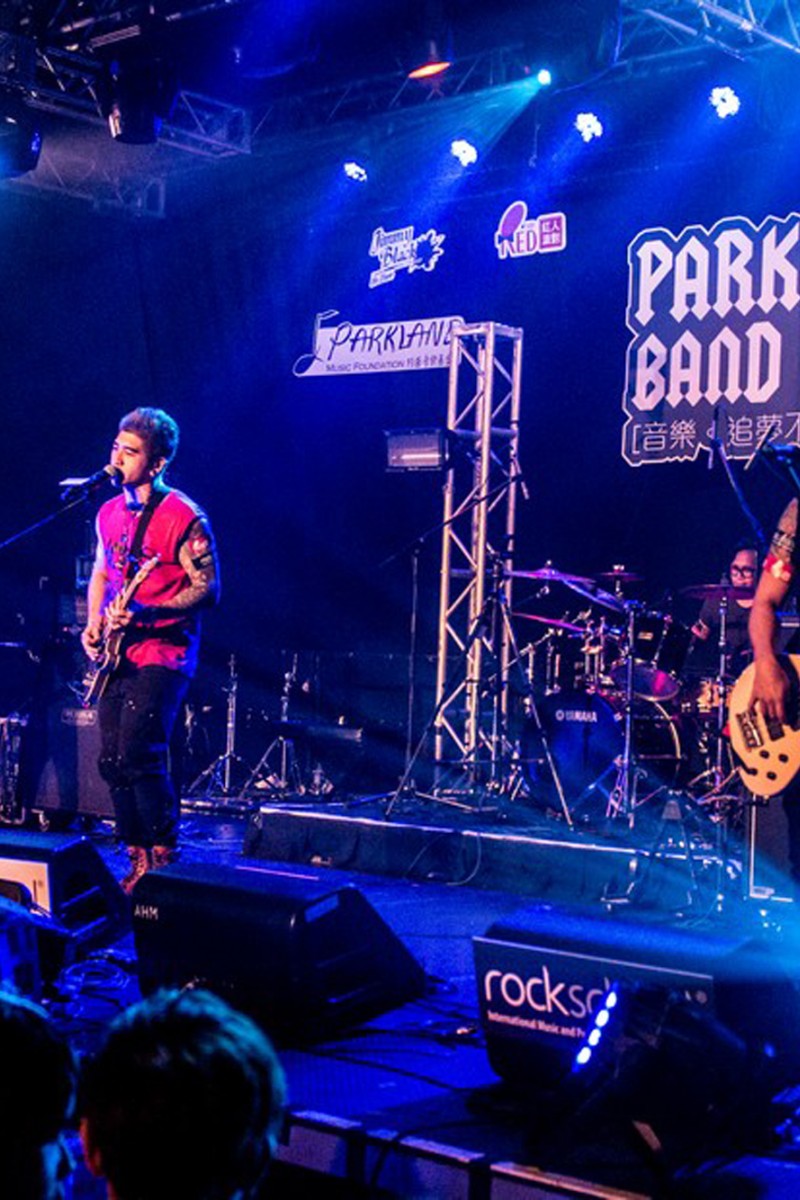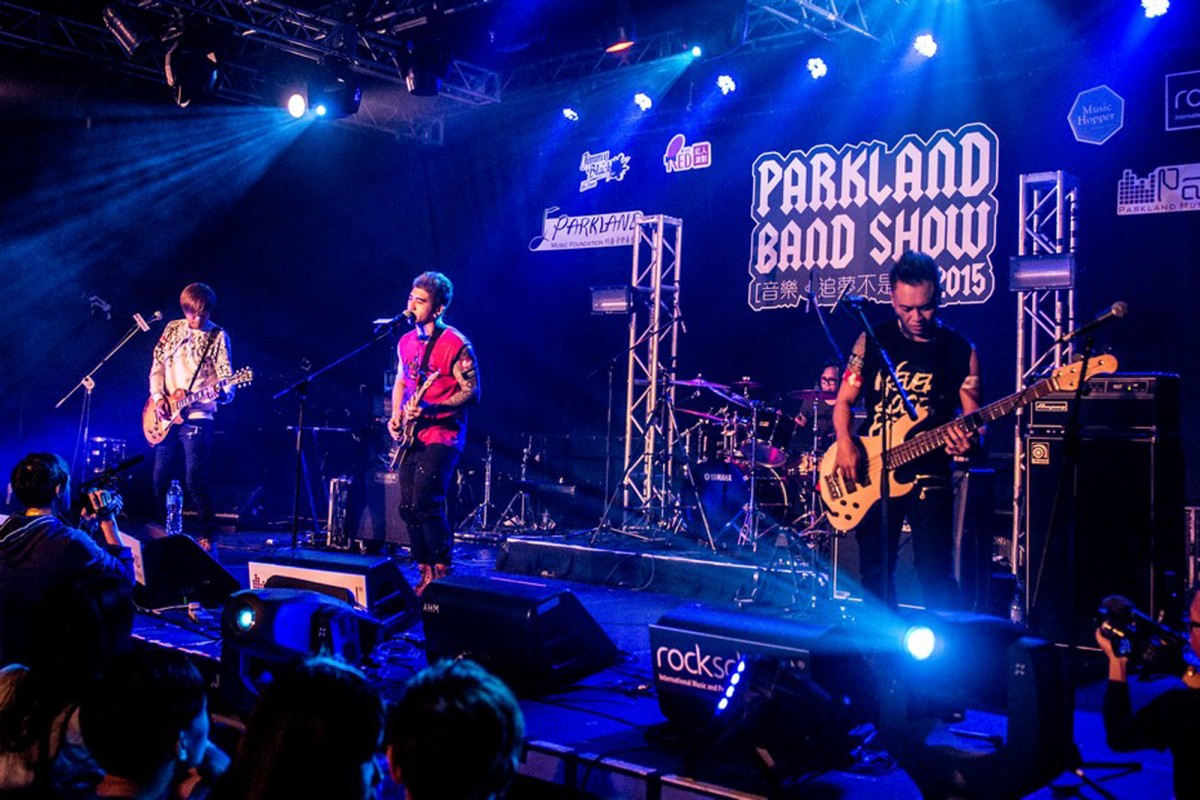
Beneath the surface, HK is a hotbed of musical creativity. And last December's Parkland Band Show shows how much talent there is in our city


Last month's Parkland Band Show 2015 offered a great platform for seven promising local bands. Under the theme "Band dream? Not a dream", the event was held on December 12 at the Music Zone at E-Max, in Kowloon Bay. Its goal was to inspire young people to perform music, and show that independent (aka indie) music dreams can become reality.
The show highlighted the diversity of Hong Kong's alternative music scene and was a big boost for indie music lovers. More established acts, such as rock group Kolor and metal band Tie Shu Lan, performed alongside newer bands, like Blaster, Sugar Bro, Unto the Dawn, Revery and Silhungmo.
Sugar Bro guitarist Gordon Kwong says: "One reason why most of our fans are teenagers is because we write songs that they can relate to". One of his band's more soulful songs is I Hate Exams (Very Much). "Why, why do schools like having exams after the holiday? You can't get high marks, you'll be blamed," mourns vocalist and guitarist Kan Lo.
While the mainstream music industry churns out soppy love songs, indie bands find their niche addressing topics from school exam gripes to controversial political issues. Their songs may be less likely to appeal to the masses, but will strike a chord with a smaller, yet more dedicated fanbase.
But not appealing to the masses means it isn't easy when it comes to getting a record deal or sustaining a career as a musician. Kwong says he was encouraged to keep fighting when he realised that even his role models Kolor experienced hardships.
Getting to play alongside them at the Parkland Band Show was a dream come true for the guitarist.
"We used to buy tickets to their concerts, so it's pretty amazing that we got to perform on the same stage as them," he says.
Sugar Bro isn't the only indie band to be inspired by Kolor. Tai King-cheung, the bassist for Revery, first saw an ad on the band's Facebook page promoting a three-day music camp organised by The Warehouse Teenage Club. At the camp, Kolor taught them about music theory and gave them feedback on their songs.
Tai, 20, says the most important lesson he learned was to always focus on making good melodies. Though making good melodies isn't easy when you don't have a place to practise.
"Many landlords, even of factory buildings, reject bands. They think we're too noisy," he says.
Having enough funds to make records is also challenging because of high studio fees. Tai says that, normally, even a low-budget seven-song record costs more than HK$80,000 to make.
But his band recently signed up with Budget Is Limited, a label started by some of Kolor's members. Now they can focus on writing music because the label offers them studio time, says Tai.
Silhungmo vocalist Ashley Tsang, the only female performer at the Parkland event, says another problem for indie bands is that they get less media coverage than more mainstream music.
"What we can do is treasure every opportunity. Our dream isn't huge, we just want to go on a little tour within Hong Kong and see where it gets us."
Watching the young crowd rocking out and shouting lyrics, it became clear that indie music is revered by a strong yet small fan base.
"Indie bands can do what they want as they don't have to care about sales," says Lina Wong, a 20-year-old concert-goer. "It shows in their lyrics. They tend to write songs about their own political views."
One example is Blaster's Green Peace, with lyrics that translate to: "Don't ignore your actions of destruction/Even though this planet is at auction/Don't brag how mighty you are/Please get to know the real situation."
Without the sculpted images and pop chart domination of mainstream acts, independent music is often thought of as a more "real" experience.
It's not hard to find independent artists if you know where to look, but the media could partly be to blame for keeping the scene underground. Only those with record deals get played on TV or radio, which means most indie artists are left out of the spotlight.
Mainstream music is like fast food: cheap and quickly produced, yet leaves music fans hungry for something more substantial.
Commercialising songs makes the art die; indie music is nourishment for both the local music scene and the soul.
With additional reporting by Melanie Leung
